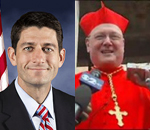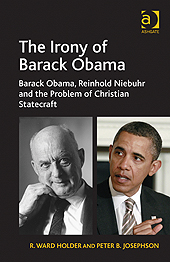
There is a sense when one steps into the produce section at the Whole Foods that one has entered a sacred space. The delicate ambiance created by the well-tuned lights and the gentle purr of background music cloaks the organic kale in an almost mystical aurora. Like a church service, Whole Food’s shoppers dress for the experience, donning bright shades of Yoga pants, organic slippers made with bamboo reeds, or any locally-made organic cotton tee—in a concerted effort to show the completeness of their healthy and ecologically-sensitive lifestyle. Moreover, when they reach the checkout line and fork over what for many normal folks amounts to a whole paycheck, the acolytes gently absorb this small sacrifice as doing their part for the environment and their bodies….

The Old Testament lection for this week from Isaiah 50 is one of the “Suffering Servant Songs,” (SSS) which, though there is nothing explicitly messianic in many of them, early Christianity nonetheless read as prophecies of Jesus. As George E. Nicklesburg demonstrated in a path-breaking article more than three decades ago in the Harvard Theological Review, the Suffering Servant wasV an important literary motif to which Israel returned repeatedly in an effort to make sense of its status as subordinate state in the larger geopolitical world in which was situated. Characters such as Joseph, Esther, and Daniel represented models of proper behavior and deportment on the part of Jews living in an alien moral universe fraught with everything from the seductive suggestions of compromise to the existential threats of extermination by the foreign powers which dominated them for so many centuries, first as the suzerain of the Israelites and then later, after 587, as their conquerors. The SSS are thus the poetic and prophetic complement to the narrative accounts of the righteous sufferers….

The record number of deportations under the Obama administration and the shift in enforcement strategy from worksite raids to isolated, yet more numerous, detentions is a symptom of a crisis faced by the modern state in an increasingly globalized economy. The state seeks to hide the coercion used to sustain the social imaginary now threatened by a changing world.

My post, “Two American Dreams and One Economic Reality,” looked at the debate about American values initiated by President Obama’s now famous quote: “You didn’t build that.” I argued that the radical individualism embodied by the Republican outrage against this phrase is consistent with neither Christian faith nor economic reality. I am proud of that essay. I think it provided a clear sense of why my Christian faith leads me to support the Democratic Party. But, some of my friends and colleagues pushed back against it pretty hard. They were concerned that my rhetoric of grace and gratitude, my vision of God’s economy, did not quite fit their experience of President Obama or the Democratic Party over the past four years. The disillusionment of these faithful Christians and good Americans is understandable, but my fear is that the fact that Barack Obama is not the Messiah may threaten his very limited but very real accomplishments in both international and domestic affairs….

We don’t expect our politicians to say much about the poor, but what about the church? When was the last time you preached or heard a sermon on the poor? Not poverty, but the poor, and not as an illustration, but as a focal point. (We might ask the same thing about a college or seminary class that purports to be about the cultivation of wisdom or faith.) The readings from Proverbs and James (see below) refer to the poor directly. Both passages are striking because they go further than a soft paternalism that might urge us to care for the poor. James and Proverbs offer not an appeal to our altruism, the work of charity, or a political agenda or campaign. They are not looking for votes or a clear conscience. They see the poor as part of the community and concern for the poor as an integral part of the life of faith and wisdom….

It’s no secret that many bishops, including Cardinal Timothy Dolan of New York, are incensed with the Obama administration over contraception coverage requirements under the Affordable Care Act. Bishops have missed few opportunities to blast the presidentas hostile to religious liberty – a meme that Mitt Romney has eagerly picked up on in a campaign ad that depicts President Obama as waging a “war on religion.”
But the selection of Rep. Paul Ryan – an intellectual darling of the conservative movement who embraces Catholic teaching to defend his policies – has complicated the Catholic narrative during these final months heading into the election….

Actually Jesus invites folks of all political and religious persuasions to a kind of humility. The human heart has, despite itself, a king of genius for corruptibility, no matter what rituals or traditions we make for ourselves. There is only one hope: to begin to see ourselves aright. And that is done by being in relation with God. This does not lie so much in the feel-good individualistic transformations beloved of conservative evangelicals, but in the challenging praxis of being part of a community of hope and forgiveness….



